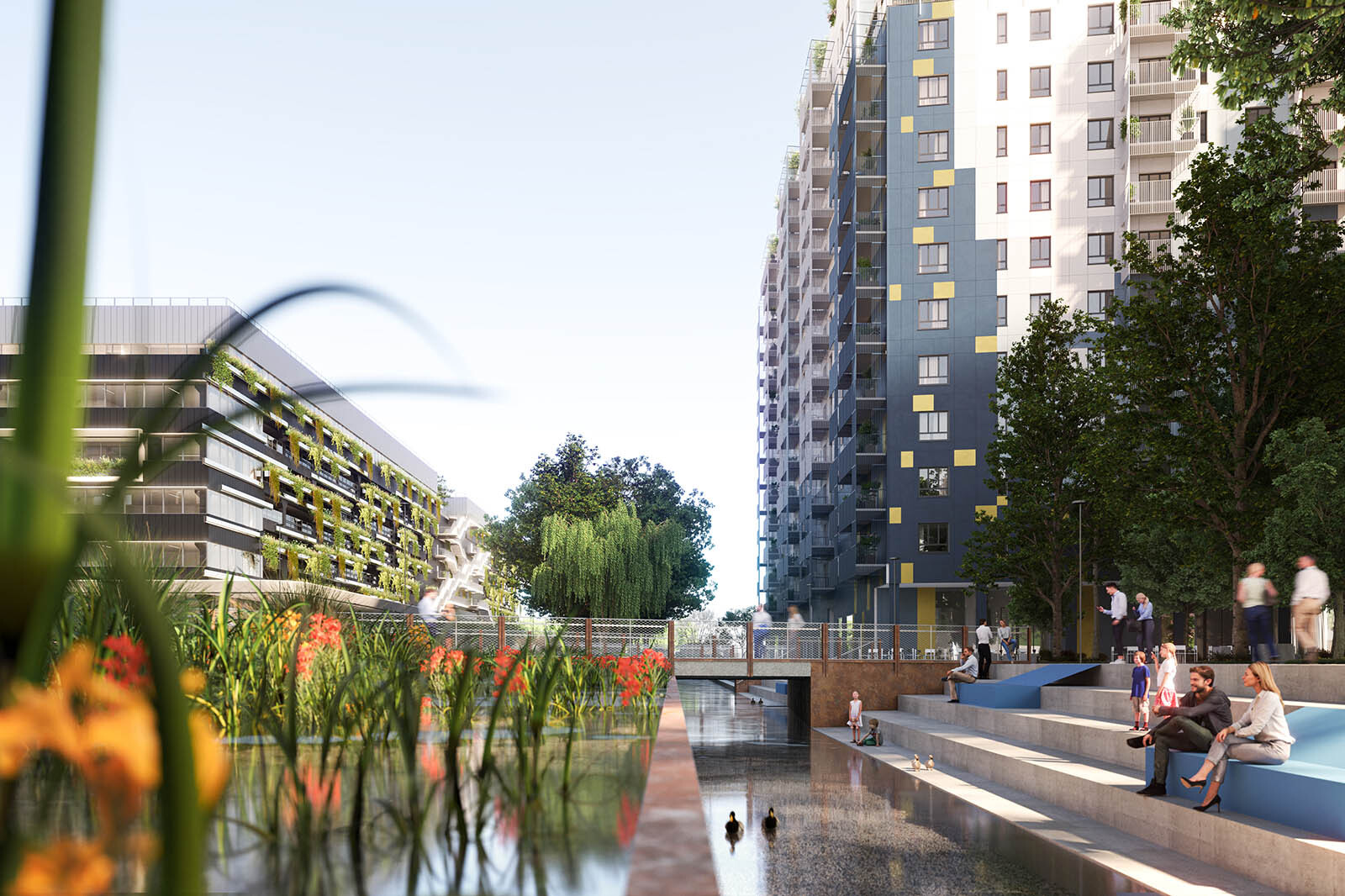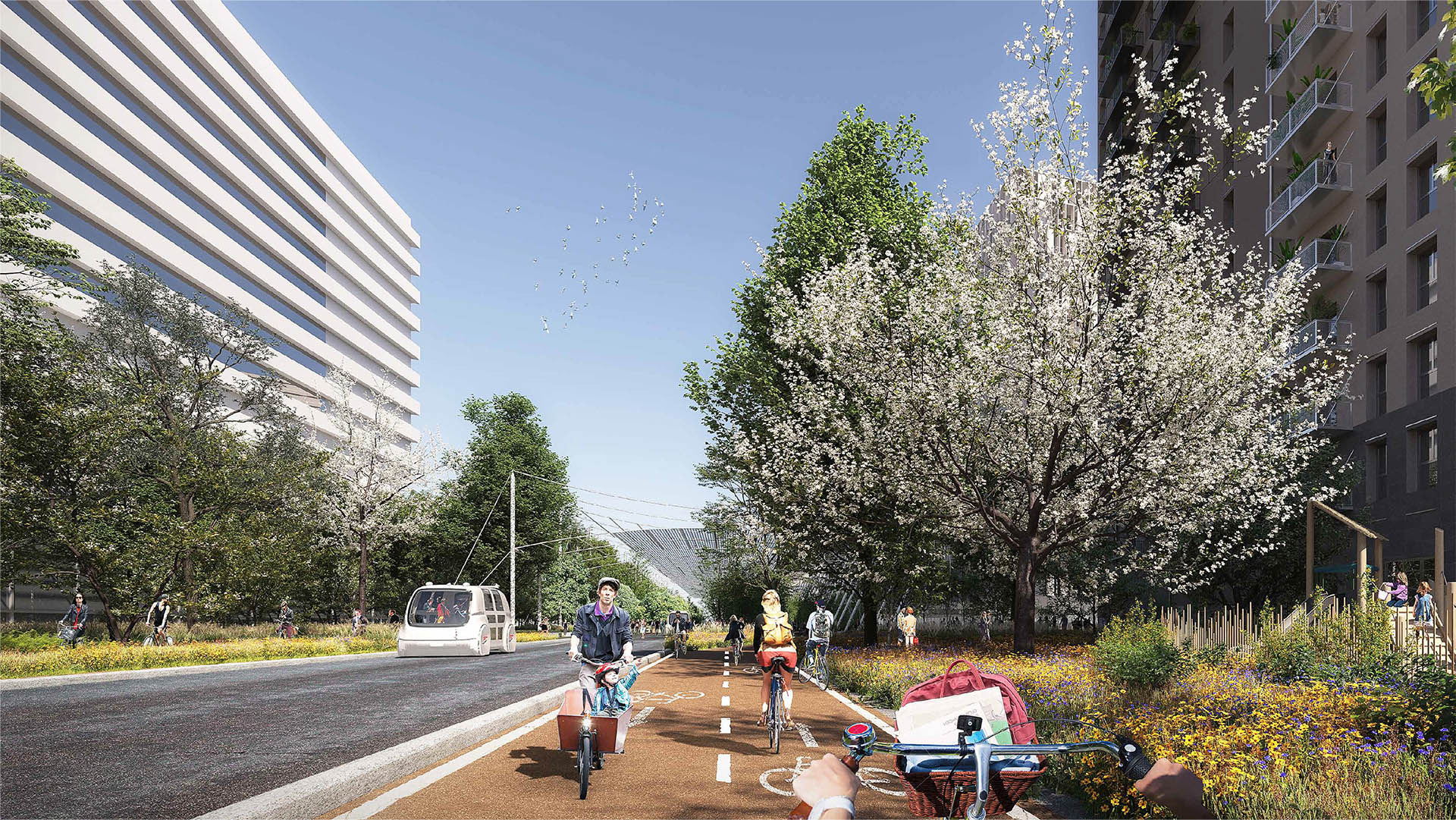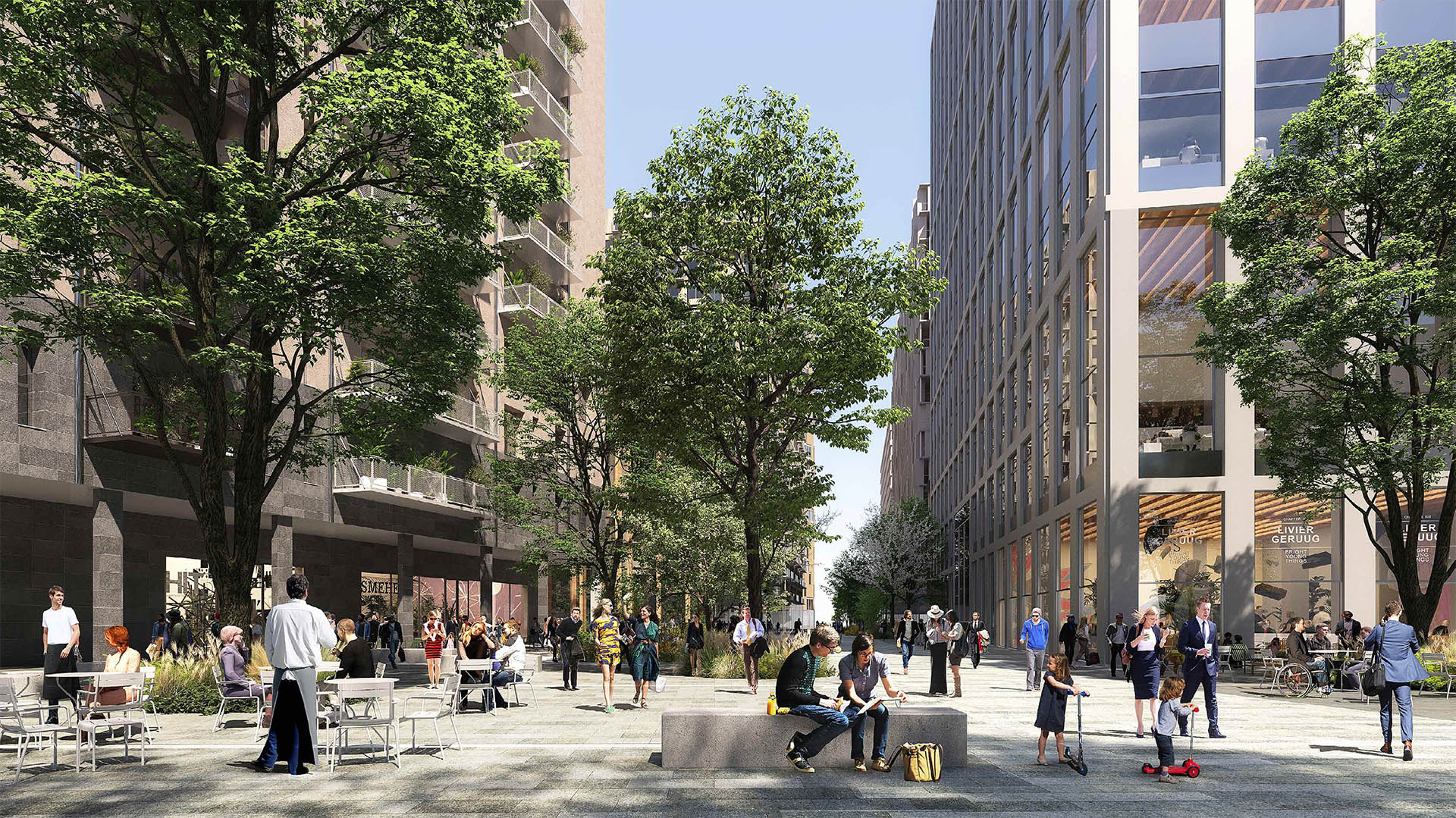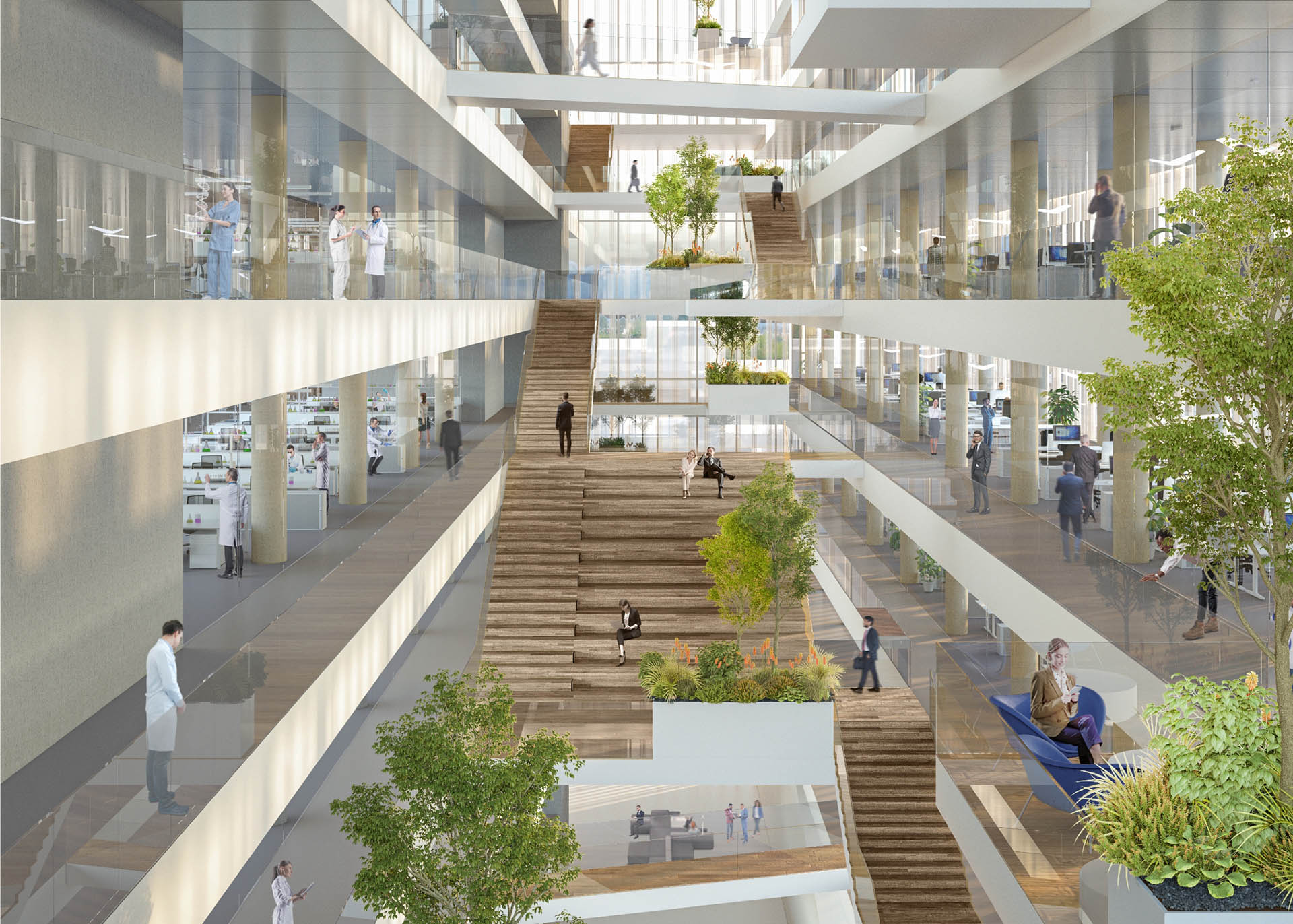The Challenges
The birth of MIND Milano Innovation District gives the city, and the whole country, the unparalleled opportunity to create a new urban environment designed to tackle the challenges of our time through innovation: a “city of the future” to be experienced first-hand, with the greatest positive impact on today’s territory and society.

Today for tomorrow
Establish a favourable relationship with nature. Foster individual growth in interacting. Enable a higher quality of life. The commitment to sustainability, the well-being of each person, and the care and dynamism of the community are the main horizons – our “MIND Centennial Challenges” – toward which the project has developed from the original vision, and then through the overall masterplan and design of the spaces.
The entire district is based on the concept of Common Ground, the idea of creating a single large ecosystem open to interpersonal exchange, and the desire to provide ideal living conditions for present and future generations.
From building solutions to mobility, the whole project imagines a profound union between architecture, sustainability and technology, with choices inspired by the One Health model and its principles of harmony between humankind and the environment.
MIND looks towards progress and is taking action to build it. The vision of a place of science and participation,
a physical and digital space for dialogue and inclusion, finds strength in the many programmes and initiatives organised by the promoters, Arexpo and Lendlease, and by the many active “Minders” – be it the acceleration activities for companies enabled by Federated Innovation or the training sessions for young Milanese.
A city for the environment
MIND as a zero-carbon district. Renewing construction techniques, optimising resources, making room for nature and its vitality – a model experience that raises the international standards of regeneration.
Looking around, the landscape is astounding. Green is everywhere: between the buildings, on their facades. Bicycles and electric vehicles move along the tree-lined Decumano, water canals give shelter to colonies and pods of small animals… There is a general perspective on sustainability that looks at the global objectives of tackling the climate crisis. And then there is the local perspective that looks at the well-being that a certain space can generate. MIND was created to satisfy both.

The creation of MIND embraces the ambition of an urban development that is functional to the decarbonisation agenda, according to Lendlease’s international commitment to reduce the rise in temperatures to 1.5 °C.
The measures involve all aspects of the district considering its entire life cycle, from construction materials to energy efficiency, from mobility to resource management through digital intelligence.
The horizon is a carbon-free setting, unencumbered by fossil resources in its everyday life, and in line with LEED Cities and Communities Gold certification standards.
Among MIND’s priorities is resilience, the ability of the site to adapt to climate conditions over time. Once again, the answer lies in nature, with 300,000 m2 of green spaces and water surfaces spread throughout the site: a living system, able to counteract the heat island effect (the overheating of urbanised areas) and reduce the possibility of flooding.
Sustainability measures taken by Lendlease for MIND
Sustainability measures taken by Lendlease for MIND
A city for well-being
MIND as a human-centric place. The presence of outstanding organisations in Life Science encourages medical progress. However, health is at the heart of the project’s entire mission: to create a great, pleasant environment that is beneficial to the people who live it.
What does a healthy community consist of? It consists of people who look after themselves and others. It has access to beneficial services: healthy food, agile mobility, sports facilities, medical care. It relies on a network of active social relationships – the engine of opportunity. It works and lives in human-scale environments designed to feel good. MIND demonstrates that a theoretical idea like holistic wellness can be transformed into something truly concrete.

Health is at the heart of MIND. Every day, the district works on the new frontiers of Life Sciences, conducts experiments, cooperates with institutes and companies, and develops new projects in the fields of biology, chemistry, genetics, and information technology. All these initiatives have been carried out since the very first days of the district, thanks to the birth of the Human Technopole, the Italian research hub dedicated to these specialty areas.
Here science does not remain locked in labs; instead, it connects with what is precisely its object: life. As the IRCCS Galeazzi Hospital starts operating as a centre for the healthcare of the future, the district will open up to the territory as a place of care, prevention, and new medicine.
The presence of healthcare companies and startups within the ecosystem promises innovations destined to improve the health of everyone.
The culture of well-being is deeply interwoven with MIND and embraces the entire district in its physical dimension. The design of the masterplan takes the holistic view of the One Health approach, based on the balance between human, animal and environmental health, and translates it into welcoming spaces that are elderly- and family-friendly. Here people can easily walk around, find quality food and be in contact with nature.
